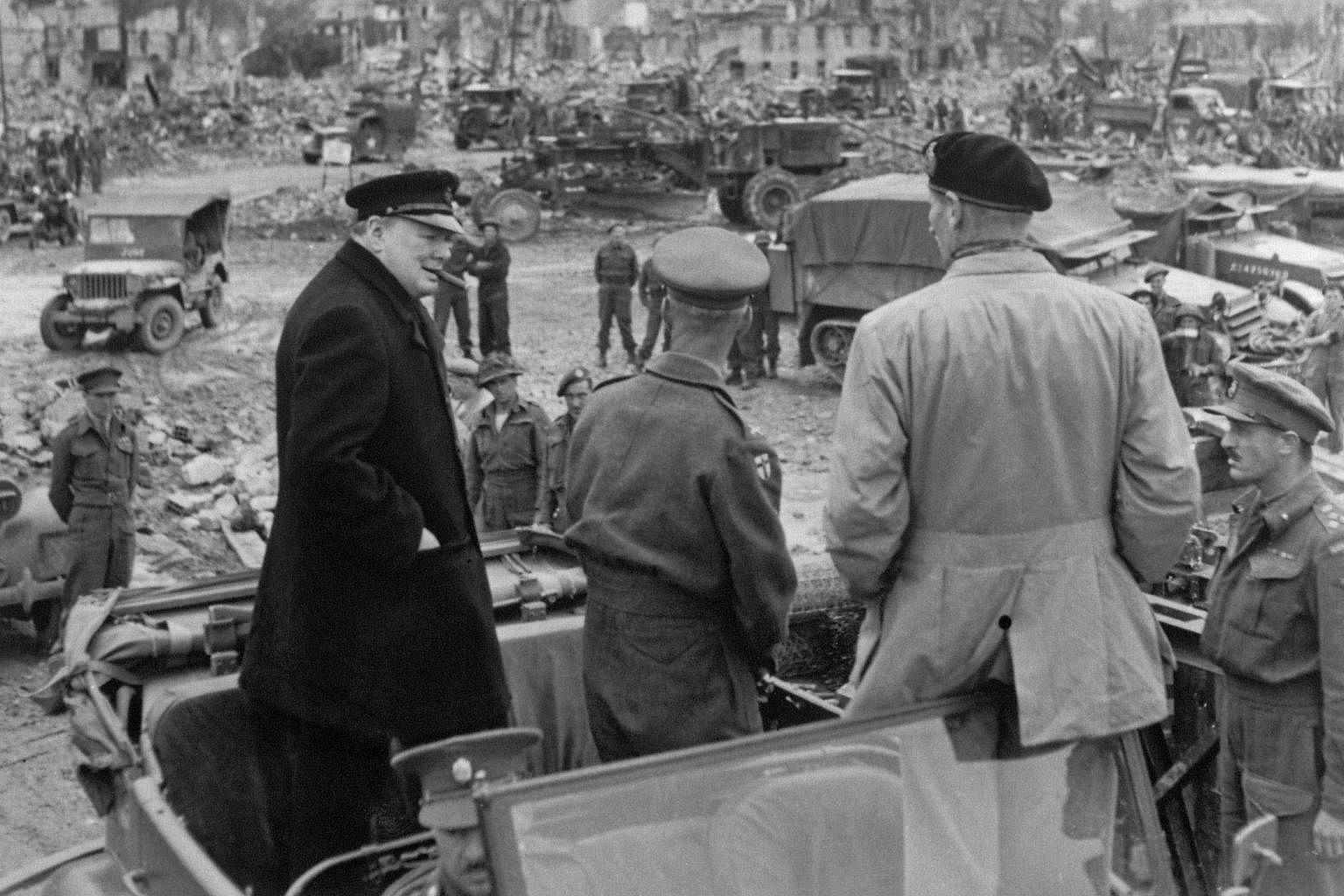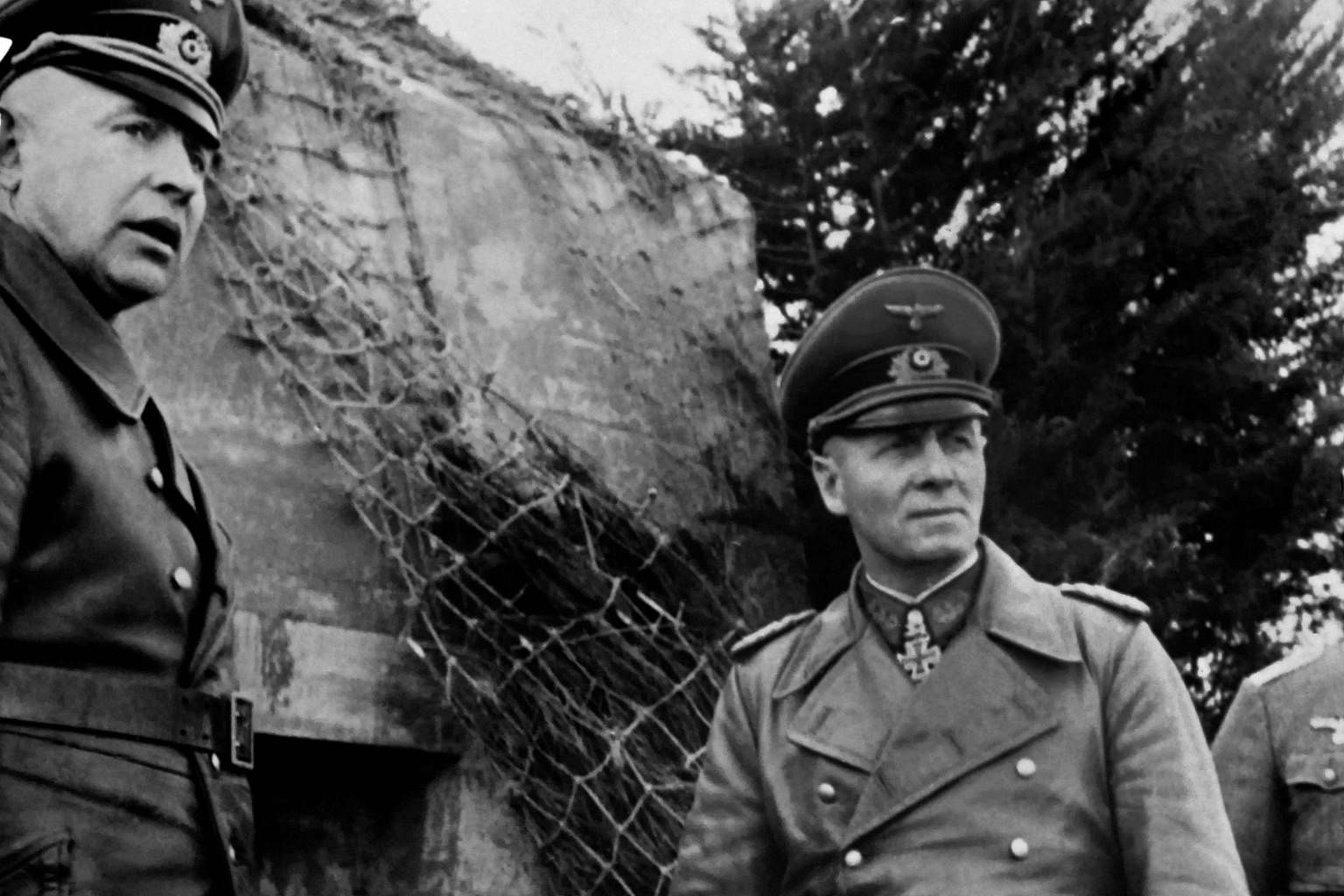PARIS (AFP) - Here are short profiles of key military figures involved in the D-Day landings.
GENERAL DWIGHT EISENHOWER
As Supreme Commander of Allied Forces in Europe, future United States president "Ike" Eisenhower was in charge of overall preparations for Operation Overlord, the Allied plan to open a western front against Adolf Hitler's Nazi forces that was launched with the D-Day landings.
Eisenhower gave the order for the massive D-Day assault in Normandy and oversaw the successful completion of the entire operation, with Paris liberated by late August.
"The free men of the world are marching together to victory," he said in a short address to hundreds of thousands of troops on the eve of D-Day, June 6, 1944. "We will accept nothing less than full victory!"

Eisenhower monitored the landings alongside British Prime Minister Winston Churchill at a fortified bunker at a Royal Air Force base outside London.
After the war, he became Nato's first Supreme Commander in Europe before winning the 1952 and 1956 US presidential elections.
US GENERAL OMAR BRADLEY

The US Army field commander led the US troops who landed on Normandy's Utah and Omaha beaches, and planned the subsequent break-out that finally opened the path to Paris.
As head of the 12th Army Group, Bradley then advanced into Germany and met up with Russian forces in mid-April 1945. His troops also liberated the Austrian concentration camp at Mauthausen.
Nicknamed the "GIs' General" by reporters because of his concern for the soldiers, Bradley in 1949 became the first chairman of the Joint Chiefs of Staff, the most-senior military officer in the United States.
WINSTON CHURCHILL

Churchill became Britain's political leader in 1940 as the Nazis were launching attacks on the Netherlands, Belgium, Luxembourg, France and London.
His bulldog spirit was epitomised by a speech days after taking office in which he promised nothing but "blood, toil, tears and sweat" and "victory at all costs".
In 1943, he approved, along with US President Franklin Roosevelt and Soviet leader Joseph Stalin, the Allied landings in Normandy. On D-Day, he announced the invasion to Parliament at noon.
Prone to deep depressions but also reputed for his determination and humour, Churchill loved Havana cigars and whisky.
He was voted out of office at the end of the war but returned as prime minister from 1951 to 1955.
FIELD MARSHAL BERNARD MONTGOMERY

The commander of Allied ground troops, Britain's "Monty" was a hero to his men because of his victory at El Alamein, northern Egypt, where his Eighth Army routed German forces on Nov 2, 1942.
His experience enabled him to play a key role in the planning of D-Day, and he was successful in arguing for much a bigger landing deployment than had initially been envisaged.
His strategy of massive force proved successful in the face of tougher-than-expected German resistance.
CHARLES DE GAULLE
France's exiled leader was largely sidelined from preparations for the Normandy landings and the snub irked him for years.
From London, De Gaulle led the Free French Forces and a government in exile while France was being run by the pro-German Vichy regime.
He met Churchill and Eisenhower prior to the landings but refused a provisional administration of France by the Allies.
De Gaulle returned to France more than a week after the invasion was launched. "I had been ready for this voyage for several days. But the Allies were in no hurry to facilitate it," he would write later.
He re-established national sovereignty after Paris was liberated.
De Gaulle became president from 1959 to 1969, and snubbed ceremonies that marked the landings, notably the 20th anniversary in 1964.
FIELD MARSHAL ERWIN ROMMEL

Dubbed the "Desert Fox" for tactical victories in North Africa, Germany's greatest general was in charge of resisting the Allied invasion but had, by that time, already concluded Germany was destined for defeat.
On D-Day itself, Rommel was on leave in Germany for his wife's birthday. He sped back to France and was seriously wounded when a British plane strafed his car on July 17.
As a result, he did not participate directly in an attempt on Hitler's life that was made three days later and about which he had been contacted by officers involved in the plot.
Gestapo investigators later discovered the link but Hitler knew he could not execute the popular officer. Instead, Rommel was ordered to commit suicide. He did so on Oct 14 and was buried following a national funeral.
FIELD MARSHAL GERD VON RUNDSTEDT

The German commander in chief in western Europe was one of Hitler's ablest leaders and stood out for opposing the dictator's disastrous strategy of invading the Soviet Union in 1941.
Dismissed, von Rundstedt returned to duty in July 1942 and fortified France against the expected Allied invasion.
Unable to repel the D-Day assault, he was replaced but returned to direct the Ardennes offensive that held up the Allies for several months.
He was captured by US troops in May 1945 and charged with war crimes. Von Rundstedt was disdainful of Nazism and Hitler but refused to participate in plots against the Nazi leader.

